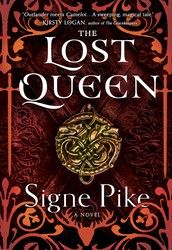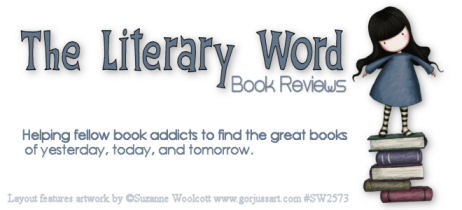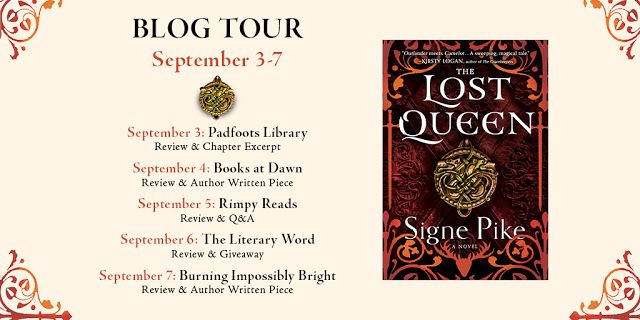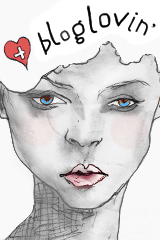
Published by De Wallen Press.
I liked the cover.
That was the start of this reading experience for me. When will I learn?
I tried to like this book. It started off promising, but the truth is that if I hadn't committed to being a blog tour participant, I wouldn't have finished reading it. That said, I'm glad I did because it confirmed for me that this memoir is a testament above all, to the fact that sometimes abuse (unintended or otherwise) is packaged as love, and consideration. It's marketed as an unusual love story among many things.
I'm uncomfortable with so much of this book and it's not because I lack an open mind. It's judgmental. The author uses the term "unhinged" to define a person within the pages. A fact I found fascinating due to the author overreacting on a large scale to a cookie situation. In yet another scenario, this self-described optimist purchases a necklace for a sex-worker who he would like to interview for his book, only to toss the necklace in the river when she fails to show (assuming the worst), and then he repurchases the same necklace when their paths reconnect. These were only two of the multiple shining examples that reveal the difference between the author's self-image and the person his actions describe.
I cannot recommend this title. I can't encourage people to support dangerous behaviours. No, I'm not talking about paying for sexual services, or the ingestion of drugs with legal status. I'm more concerned that the author felt it acceptable to pressure Emma to share her traumatic past, acknowledging that she needed to be strong and even found it necessary to take a break from the conversation. He continues to pelt her with questions that are often loaded with negative connotations and yet more judgment. I was horrified that he describes this interaction as caring, love, bonding, when to me the scene was far more harmful and destructive and would have been far safer for the health and wellbeing of Emma, if it had been conducted with a trauma specialist within a safe environment. I am still in disbelief that what the author viewed as two human beings sharing an intimate experience is clearly and unapologetically his wrenching information from her for one sole purpose. His book.
That's ultimately the take away of this read. Harmful and horrible behaviour towards others, believing himself to be of higher moral calibre and thus experienced to "save" those around him. All of this, and more is somehow acceptable because it's all about the book.
There are many books that deal with Amsterdam. Read one of those. Read any of those. This book can't even be redeemed as a guide to Amsterdam since much has changed since the era within these pages some 18 years ago. I did like one thing. The cover. I really had hoped to be able to share a positive review for my stop on the blog tour but I can't love them all.
P.S. I truly hope wherever she is, Emma has found happiness and peace in life.
Excerpt included below courtesy of the author and Smith Publicity.
Oliver aspired to be a writer and instantly attached himself to me. Half Indonesian and half Dutch, he was raised in The Hague by a celebrated Dutch novelist. Now living in Amsterdam for the first time, he was ready for adventure.
“So, what’s your plan for writing the book?” he asked.
“Plan?” I said, with an uneasy smile. I didn’t really have one. I was fine with that, based on lessons I had learned years before.
After my freshman year in college, while my friends were securing internships in the business sector, I enrolled in whitewater rafting school in Idaho. My love for rafting ran deep, but while growing up, I never considered becoming a guide. I was being groomed for a different kind of life. Being a guide wasn’t an option, or at least wasn’t presented as one. My perspective changed while on a river trip during my senior year of high school. I was surprised to learn one of my guides was premed at Yale. I was off to Columbia in the fall. My mind was blown.
“If I can do it, why can’t you?” she said. “Your identity is yours to choose.”
A light went on. I wasn’t stuck on a path at all. Corporate America would have to wait.
Guide school began in June, and conditions were extreme. The Middle Fork of the Salmon was running high, making the journey treacherous and unpredictable. We were in the wilderness for 15 days, and it rained nonstop. It was brutal, and we had to be careful. We had no idea what to expect downstream. When possible, we would climb the banks of the river to give us perspective on the rapids ahead. We would study the currents, noting side eddies and obstacles, and plot a course. Often, though, we had no choice but to enter the rapids blind.
I came to believe navigating life is very much like navigating a river. Each of our lives has a unique current. At certain times, we have more than one. They are never easy to find. Once we find our current, the trick is staying in it. There are many proverbial rocks and eddies confronting us every day. Some cling to them, or become stuck in them, and life passes them by—often due to fear, laziness, and other human foibles. While there are dangers ahead, there is also unimaginable beauty. Sometimes you can get a glimpse of what’s to come; often you can’t. Needless to say, you can never swim against the current, or create a path that’s not yours. Doing so is futile, and can lead to ruin.
Seeing life like a river made sense, and guided me through my time in Amsterdam. What was my plan? I just needed to find my current, and stay in it. Everything else would follow.
 Published by Touchstone Books an imprint of Simon & Schuster and Simon & Schuster Canada
Published by Touchstone Books an imprint of Simon & Schuster and Simon & Schuster Canada

 Published by De Wallen Press.
Published by De Wallen Press.












